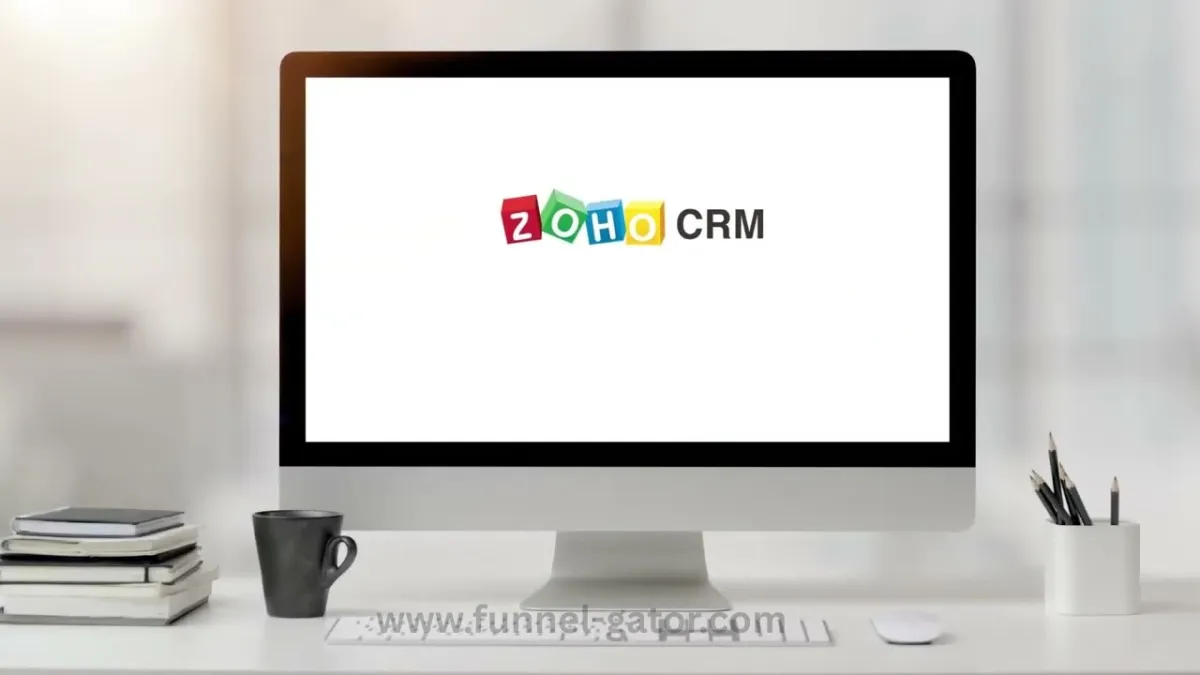
How to Set Up Zoho CRM: A Simple Step-by-Step Guide for Beginners
If you’re a small business owner or a sales manager juggling too many tasks, a CRM (Customer Relationship Management) tool is your best friend. And among all the options out there, Zoho CRM stands tall as one of the most affordable and user-friendly platforms for managing customers, leads, and sales.
But here's the catch — many people sign up for Zoho CRM and feel overwhelmed with the setup process. Sound familiar? You’re not alone!
Let’s break it down step-by-step, using plain English and real-world examples, so you can set up Zoho CRM confidently — even if you’re not tech-savvy.
🧠 What Is Zoho CRM and Why Should You Care?
Zoho CRM is a cloud-based software that helps businesses manage their customer data, sales pipelines, follow-ups, emails, and reporting — all in one place.
Imagine this: Sarah runs a small handmade soap business. Before using a CRM, she had spreadsheets full of contacts, sticky notes for call reminders, and emails scattered all over her inbox. After setting up Zoho CRM, she started getting reminders for follow-ups, automatic email replies, and even visual sales reports. Her sales grew by 25% in just three months.
If Sarah can do it, so can you.
🛠️ Step-by-Step Zoho CRM Setup Guide
Let’s walk through how to set up Zoho CRM from scratch.
1. Sign Up and Choose the Right Plan
First, head over to Zoho CRM Pricing Page and sign up for a free trial. They offer a 15-day free trial with access to premium features.
✅ Tip: If you're just starting, the Standard or Professional plan is usually enough.
2. Set Up Your Organization Profile
Once you’re logged in:
Click on the gear icon (top-right corner).
Go to Company Details under "General".
Fill in your business name, industry, and contact details.
📌 Why this matters: This info will reflect in your invoices, email templates, and reports.
3. Add Users and Define Roles
Let’s say you have a small team: Jack handles sales, Lily takes care of customer service, and you manage both.
Go to Setup > Users & Control > Users.
Click + New User and enter their email.
Assign roles like Sales Manager, Support Agent, etc.
🔐 You can also set permissions so that Jack doesn’t accidentally see Lily’s customer support tickets.
4. Customize Modules to Fit Your Business
Zoho CRM includes default modules like Leads, Contacts, Accounts, and Deals.
But what if you run a real estate business and want to track “Properties” instead of “Products”?
No problem!
Go to Setup > Modules and Fields.
Add new modules or rename existing ones.
🎨 This flexibility makes Zoho CRM setup perfect for small businesses, agencies, freelancers, and even startups.
5. Import Your Existing Data
If you’ve got customer data in Excel or Google Sheets:
Click on the module (e.g., Leads).
Choose Import > From File.
Match columns with fields (Zoho does this automatically in most cases).
📁 Supported formats: .CSV, .XLS, .XLSX
6. Set Up Lead Scoring and Automation
Let’s say a new lead downloads your brochure and visits your pricing page. That person is likely more interested than someone who just browsed your homepage.
With Lead Scoring, you can assign points to actions like:
+10 for email open
+20 for website visit
+50 for booking a demo
🎯 You can then automate follow-up emails using Workflow Rules.
7. Connect Your Email and Phone
Go to Setup > Channels > Email.
Integrate Gmail, Outlook, or Zoho Mail.
For calls, integrate tools like Twilio, RingCentral, or Zoho’s native phone system.
📞 This lets you track every email and call — no more guessing who said what!
8. Create Dashboards and Reports
Want to know how many leads closed this month? Or which sales agent is crushing it?
Go to Dashboards > Create Dashboard.
Choose from widgets like bar charts, funnels, KPIs, and more.
📊 These real-time reports help you make smart decisions, fast.
9. Integrate with Other Tools
Zoho CRM works like a charm with tools like:
Zoho Books – for accounting
Zoho Campaigns – for email marketing
Zapier – to connect with thousands of other apps
🤝 This makes your Zoho CRM setup feel like a complete business operating system.
10. Train Your Team
Finally, don’t forget to train your staff. Even the best tool is useless if people don’t know how to use it.
Use Zoho’s CRM Academy for self-learning.
Schedule weekly team check-ins to share tips.
💡 Real-Life Anecdote
I once helped a client, a digital marketing agency, struggling with lead follow-ups. Leads were slipping through the cracks. We implemented Zoho CRM with simple automation like follow-up emails and task reminders.
Within a month, they saw a 40% increase in client responses.
Why? Because nothing was forgotten. Everything was automated and trackable.
✅ Why Zoho CRM Is a Smart Investment
Affordable pricing for all business sizes.
Easy customization and automation.
Scalable as your business grows.
Secure and GDPR-compliant.
Excellent customer support and documentation.
👉 Start your Zoho CRM free trial here and give your business the control and clarity it deserves.
❓ FAQs About Zoho CRM Setup
1. Is Zoho CRM free?
Yes, there’s a free version for up to 3 users. But for automation and customizations, the paid versions offer much more.
2. How long does it take to set up Zoho CRM?
For a basic setup, it takes 1-2 hours. More complex businesses may need a day or two.
3. Can I migrate from another CRM like HubSpot or Salesforce?
Absolutely. Zoho offers data migration tools for popular platforms.
4. Do I need coding to use Zoho CRM?
Not at all. Everything is drag-and-drop. But if you want deeper integrations, you can explore Zoho Deluge scripting.
5. Is Zoho CRM secure?
Yes, Zoho follows top industry security protocols and is GDPR-compliant.
Final Thoughts
Setting up Zoho CRM might feel like climbing a mountain at first, but once you reach the top, the view is worth it. You'll have clearer insights, better organization, and happier customers.


